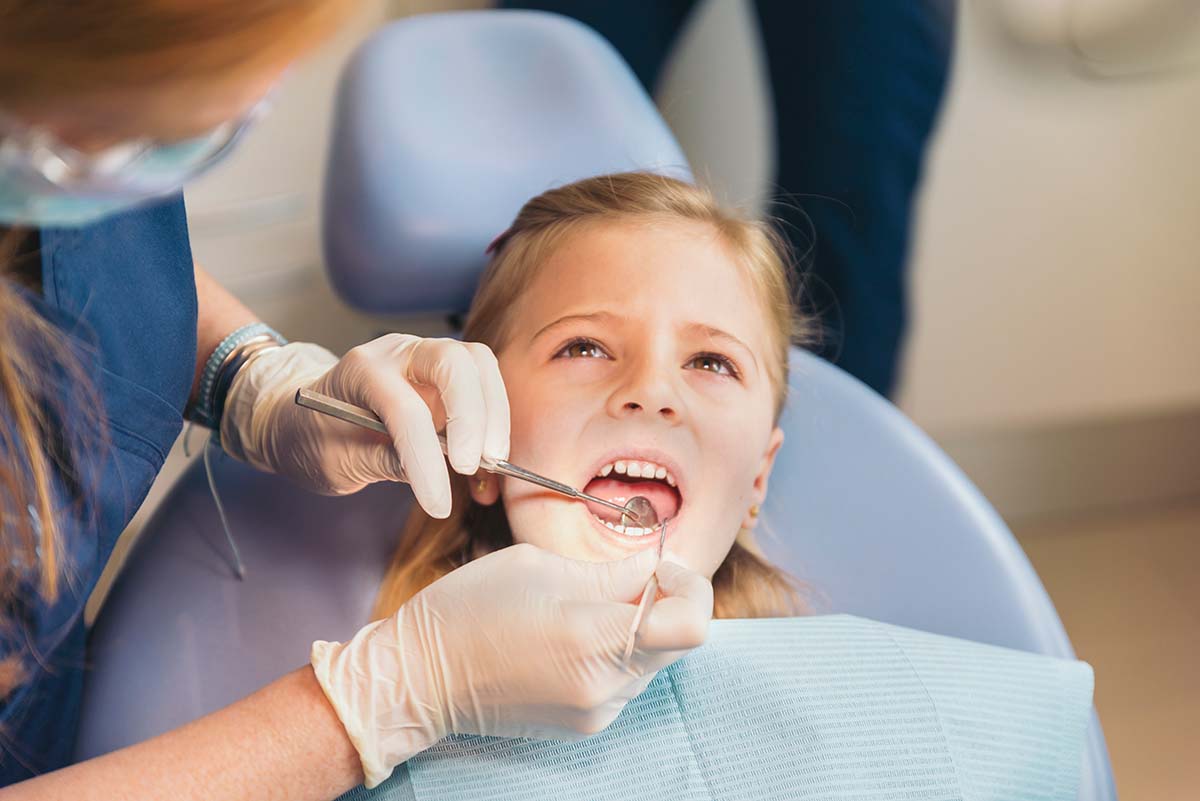I. Introduction
A. The importance of dental care in childhood B. Long-term positive impact
II. Establishing an Oral Hygiene Routine
A. Beginning care – the first visit to the dentist B. Proper brushing and flossing for children C. The importance of choosing age-appropriate products
III. Healthy Eating for Oral Health
A. The relationship between diet and oral health B. Foods that promote healthy teeth C. Foods to avoid to prevent dental problems
IV. Prevention of Dental Problems
A. Dental sealants and their effectiveness in preventing caries B. Fluoridation – how to protect teeth from decay C. Importance of regular visits to the dentist for prevention
V. Creating a Positive Dentist Experience
A. Approaches to reduce fear and anxiety B. The role of parents in preparing the child for the dental visit C. Rewards and incentives to promote a positive attitude towards dental care
Introduction: The importance of dental care in childhood
Proper dental care from childhood is key to ensuring lifelong oral health. Encouraging and establishing an oral hygiene routine from an early age can have significant benefits in the future. In addition, taking care of teeth from childhood not only helps prevent dental problems, but also contributes to the overall health of the child.
Establishing an Oral Hygiene Routine
A. Start of care – the first visit to the dentist
The first visit to the dentist is an important milestone in a child’s life. It is recommended that a child makes their first visit to the dentist around 6 months after the first tooth appears or before their first birthday. This initial visit helps create a positive relationship with the dentist and allows parents to receive proper guidance on initial care.
B. Proper brushing and flossing for children
Tooth brushing should begin as soon as the first teeth appear. Use a soft-bristled toothbrush and an adequate amount of fluoride toothpaste, the size of a grain of rice for children under 3 years old and a pea-sized amount for children over 3 years old. Flossing is also essential to remove food debris and plaque from between the teeth.
C. The importance of choosing age-appropriate products
When choosing oral hygiene products for children, it is important to opt for those that are age-appropriate. Toothbrushes with vibrant colours or favourite characters can make the experience more fun, encouraging the child to actively participate in the oral hygiene routine.
Healthy Eating for Oral Health
A. The relationship between diet and oral health
Nutrition plays a crucial role in children’s oral health. A balanced diet, rich in nutrients such as calcium, vitamin D and vitamin C, contributes to the formation of strong teeth and healthy gums.
B. Foods that promote healthy teeth
Foods like milk, cheese, yoghurt, fruits and crunchy vegetables are great allies for healthy teeth. These foods help neutralise oral acidity and provide essential nutrients for the maintenance of dental tissues.
C. Foods to avoid to prevent dental problems
Foods high in sugar and starch, such as sweets, soft drinks and biscuits, can cause damage to teeth if consumed in excess. Avoiding frequent consumption of these foods is key to preventing cavities and other dental problems.

Prevention of Dental Problems
A. Dental sealants and their effectiveness in preventing caries
Dental sealants are protective coatings applied to the chewing surfaces of back teeth. They help prevent bacteria and food from penetrating into the cracks of the teeth, reducing the risk of tooth decay.
B. Fluoridation – how to protect teeth against decay
Fluoride is a mineral that strengthens tooth enamel and makes teeth more resistant to decay. Water fluoridation and the use of fluoride toothpastes are important measures to protect teeth from decay.
C. Importance of regular visits to the dentist for prevention
Regular visits to the dentist are essential to monitor the child’s oral health and identify any dental problems early. Regular dental check-ups help prevent complications and treat problems at an early stage.
Creating a Positive Dentist Experience
A. Approaches to reduce fear and anxiety
Many children are afraid of going to the dentist, which can lead to a negative experience. To reduce fear and anxiety, parents should explain to the child what to expect at the dentist visit in a positive and reassuring way.
B. The role of parents in preparing the child for the visit to the dentist
Parents play a crucial role in creating a positive experience at the dentist. Accompanying the child during the visit, offering emotional support and reinforcing the importance of dental care are all attitudes that contribute to the child’s peace of mind.
C. Rewards and incentives to promote a positive attitude towards dental care
Offering small rewards or incentives, such as stickers or small toys, after a successful visit to the dentist can help create a positive association with dental care. These rewards not only make the experience more enjoyable, but also incentivise the child to maintain the oral hygiene routine.
In short, dental care for children is key to ensuring long-lasting oral health and promoting healthy habits from an early age. With a proper oral hygiene routine, balanced diet and regular visits to the dentist, children can enjoy a radiant smile and a life full of oral health.



